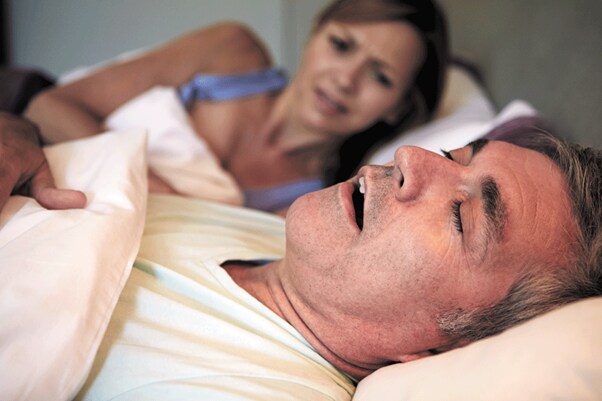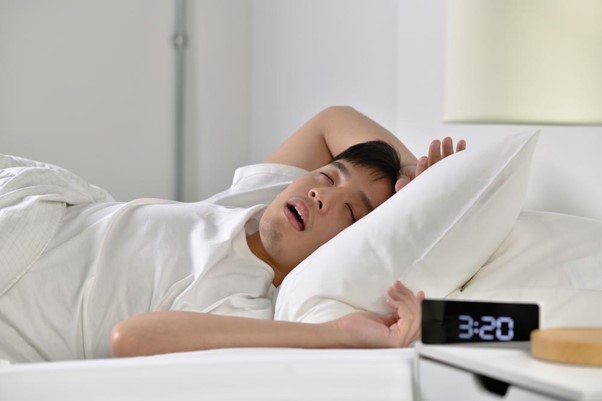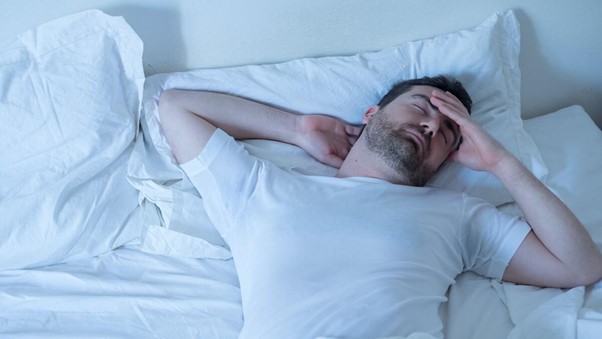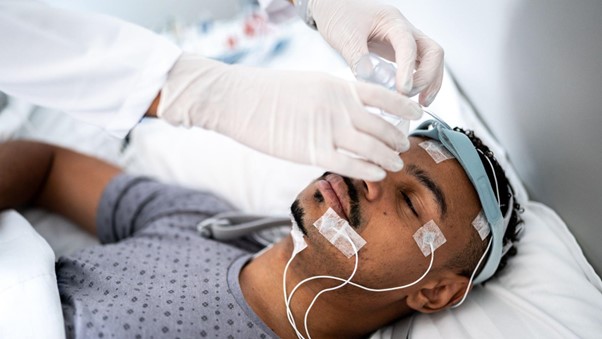
Decoding Sleep Disturbances: When to See an ENT Specialist
In a world where a good night’s sleep is a precious commodity, snoring and sleep disorders are not just a nuisance but a significant health concern. They can disrupt sleep patterns and lead to a variety of health issues. But when does the occasional snore become a serious enough problem to consult an ENT specialist?
In this comprehensive guide, we will explore the signs, impacts, and treatment options for snoring and sleep disorders and understand when professional help is necessary.
Understanding Snoring and Sleep Disorders
Snoring occurs when the flow of air through the mouth and nose is physically obstructed during sleep. While snoring is common, it can sometimes be the first sign of a more serious condition known as sleep apnea, which is characterized by pauses in breathing or shallow breaths while sleeping.
Sleep disorders encompass a range of issues from insomnia to sleep apnea and can significantly impact one’s quality of life. Common signs of sleep disorders include excessive daytime sleepiness, difficulty falling or staying asleep, irregular breathing, or increased movement during sleep.
The Impact of Snoring and Sleep Disorders

The effects of these conditions are not confined to the night alone. They can lead to:
- Daytime fatigue and sleepiness
- Morning headaches
- Concentration difficulties
- Increased risk of high blood pressure, heart problems, and stroke
- Mood changes, such as irritability or depression
- Decreased libido
When to Consult an ENT Specialist
It might be time to consult an ENT specialist if you experience the following:
Regular Loud Snoring
If your snoring is loud enough to disrupt your partner’s sleep or even your own, it could be a sign of obstructive sleep apnea.
Breathing Pauses
Observing pauses in breathing during sleep is a significant warning sign. These can sometimes be reported by a partner.
Excessive Daytime Sleepiness
Struggling to stay awake during the day, particularly during quiet activities, is a hallmark of sleep disorders.
Sore Throat Upon Awakening
Regularly waking up with a sore throat can be linked to snoring or breathing through the mouth during sleep.
Restless Sleep

Frequent waking during the night, tossing and turning, or waking up feeling unrefreshed can be symptoms of sleep apnea.
Presence of Coexisting Health Conditions
Conditions such as obesity, hypertension, and diabetes can be associated with sleep apnea.
Non-Refreshing Sleep
If you consistently feel as though you haven’t slept well, despite spending adequate time in bed, it might be time for an evaluation.
Behavioral Issues in Children
In children, poor attention span, behavioral issues, and learning difficulties can sometimes be attributed to sleep disorders like sleep apnea.
Diagnostic Approaches
An ENT specialist may use the following methods to diagnose the cause of snoring and sleep disorders:
Physical Examination
Examining the structures of the mouth, nose, and throat can reveal abnormalities like enlarged tonsils, which may contribute to snoring and sleep apnea.

Sleep Study (Polysomnography)
This test records a variety of body functions during sleep, including breathing patterns, brain activity, and heart rhythms, to diagnose sleep disorders.
Home Sleep Apnea Testing
For convenience, a home sleep test might be recommended, which is a simplified version of polysomnography that can be done at home.
Imaging
In some cases, imaging studies like a CT scan or MRI might be necessary to check for structural issues in the airways.
Treatment Options
Lifestyle Modifications
Often the first line of treatment includes weight loss, exercise, reducing alcohol consumption, and changing sleep positions.
Continuous Positive Airway Pressure (CPAP)
A CPAP machine is a common treatment for moderate to severe sleep apnea, which keeps the airways open by providing a constant stream of air.
Oral Appliances
These devices are custom-made to fit your mouth and work by bringing your jaw forward, which can help keep the airway open.

Surgery
In some cases, surgical options might be necessary, such as the removal of adenoids or tonsils, or procedures to remove excess tissue from the throat.
Positional Therapy
For some individuals, snoring or sleep apnea occurs mainly when sleeping on the back. Positional therapy can help train the individual to sleep in a different position.
Medications
While there are no medications to cure snoring or sleep apnea, some medications can help with underlying issues such as nasal congestion or allergies.
Behavioral Therapy
For those with insomnia, cognitive-behavioral therapy can be an effective treatment.
Long-Term Management
Successfully managing snoring and sleep disorders often requires a multi-faceted approach, including:
- Regular follow-up appointments
- Monitoring and potentially adjusting treatments
- Continued lifestyle modifications
- Using prescribed therapies such as CPAP every night
Conclusion
While snoring and sleep disorders can take a toll on your health and well-being, there are many effective treatments available. Recognizing the signs early and consulting with an ENT specialist can lead to a tailored treatment plan that provides relief and improves quality of life. To learn more about sinus treatment, visit Dr. KH Lim Ear Nose Throat Clinic today.
Remember, sleep is not just a period of rest, but a critical component of our overall health. If you suspect that you or a loved one may be suffering from a sleep disorder, don’t hesitate to reach out for professional help. With the right intervention, a peaceful night’s sleep doesn’t just have to be a dream.